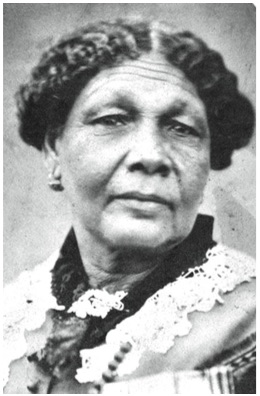
Yellow fever, cholera, and now COVID-19. Throughout its history, the Caribbean has been impacted by disease – sometimes with devastating consequences. From March 24 to 26, historians looked at the epidemics that plagued the region, and the way these deadly viruses impacted not only lives but also culture. History Fest 2021 unearthed stories from the Caribbean’s struggles over the centuries with these invisible opponents.
Titled “History Fest: Epidemics and Caribbean History”, the three-day initiative hosted by the Department of History within UWI’s Faculty of Humanities and Education, included a host of compelling presentations from historians, public health experts, and scholars and other professionals from a variety of fields. Among them was Dr Rana Hogarth, Associate Professor of History at the University of Illinois, who spoke on yellow fever and slavery.
“Yellow fever was believed to have come to North America and the Caribbean from Africa through the Slave Trade,” she said. There was the perception that blacks were somehow immune to this disease while whites were vulnerable. Indeed, white people did rapidly catch yellow fever.
“Blacks were regarded as ‘naturally' immune,” Dr Hogarth said, “however, it is more possible that slaves already caught yellow fever [growing up in Africa] and simply developed an immunity.” In the 18th century, physicians and notable Europeans, fueled this “black Immunity” narrative with writings suggesting race was a determinant in contracting yellow fever. Dr Hogarth asserted that, “yellow fever killed many troops in the Caribbean, notably in Jamaica, and numerous guide books, essays, and articles on how to survive yellow fever in the Tropics, were written.”
In 1748, American scientist John Lining wrote, “there’s something very singular in the constitution of the Negroes, which rendered them not liable to this fever”.
Dr Hogarth exclaimed, “These beliefs were damaging and continue to be damaging!” There are little to no records of black people suffering from yellow fever; in a way deleting from history these experiences of illness, treatment, survival, and death.
“Even in instances where, physicians observed black people getting yellow fever, they still reported distortions of the truth, implying that there were differences in symptoms because of race,” she said. When 800 black troops contracted the disease, it was downplayed: “writers suggested it was because of their diets!” History still does not accurately reflect how an epidemic truly impacted a race of people, simply because of the colour of their skins. Their experience has been erased.

In the 19th century, cholera, much like the yellow fever, stormed the Caribbean but also impacted Europe. Physicians did not know how to treat it, and many British soldiers as well as other whites, blacks and mixed race people died. Dr Aleric Josephs, Senior Lecturer (retired) at the Department of History and Archeology at UWI Mona in Jamaica, shared how a controversial figure emerged during this time; “the doctors realised that the plants could be used as cures and the Africans knew how to use them. One of which was Mary Seacole!”
Dr Josephs, who has published extensive work on Seacole, told the virtual listeners, “Mary Seacole was a nurse, even though never officially or legally recognised, a doctress, a businesswoman, a writer and a wife! She had learned the art of African healing from her mother, which is extracting cures from plants.”
Seacole eventually established lodging houses in Britain, Panama and Jamaica. “They provided boarding and healthcare to soldiers, sailors, poor whites and freed slaves,” Dr Josephs said. Mary Seacole could not get formal training as a coloured woman, but she developed her medical skills through interactions with physicians willing to share. Dr Josephs gave intriguing facts about Seacole, such as the autopsy she performed in Panama on a cholera patient to learn more about the disease, and that she cared for and treated her husband Horatio Seacole until his death.
Now, we find ourselves faced with similar circumstances to the 18th and 19th century outbreaks. COVID-19 is regarded as a significant event in our history and History Fest 2021 did not ignore the enormous responsibility of historians to accurately record how the Caribbean survives this crisis. “Just imagine writing the history of 2020/2021. What will it look like?” said Dr Heather Cateau, Dean of the Faculty of Humanities and Education, and a senior lecturer in History.
She added, “Only by looking at the past, with the right eyes, can we contextualise and stabilise the present.”
This year is the first virtual staging of History Fest. Dr Debbie McCollin, Lecturer in the Department of History and host of History Fest 2021, stated, “COVID-19 continues to ravage our societies and to really make a mockery of our systems and our plans!”
However, as Government Archivist of the National Archives of Trinidad and Tobago and President of the Caribbean Branch of the International Council of Archives (CARBICA) Ms Avril Belfon said, quoting CARBICA, “the duty to document does not cease with a crisis; it becomes more essential.”